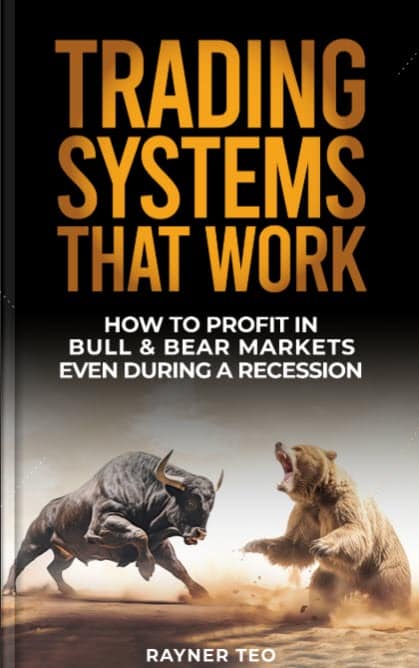Subscribe
Apple | Google | Spotify | Stitcher | Soundcloud | YouTube
In today’s episode, I’ll settle this common dilemma that haunts every trader: “Should I use fundamental analysis in my trading?”
So listen to it now to find out…
Transcript
Hey, hey, what’s up my friend?
In today’s episode, I want to talk about whether you should use fundamental analysis in your trading.
The answer is – it depends.
It depends on your trading methodology and your trading style.
Let’s say you’re a stock trader and there are easily thousands of stocks to trade.
How do you know which stocks you want to focus on?
You can use fundamental analysis as a filtering technique
That’s where fundamental analysis can help you to filter or narrow down the number of markets you want to trade. You might want to focus on growth stocks, that have strong earnings over the last few years.
Or maybe you want to pick bottoms in the market and trade stocks that have a low price to book value.
As you can see, there are a lot of ways to go about it. So fundamental analysis can help you to filter down or narrow down the markets that you should be trading, depending on your trading approach.
So yes, fundamental analysis can be used especially for stock traders. The key thing about fundamental analysis is it’s useful to tell you what stocks to buy and trade.
However…
You can’t use fundamental analysis to time your entry or exit
Because fundamental analysis usually comes up with a new report or a new update once every three months. That’s why you have the earnings report and the earnings calendar for stocks once every three months.
If you were to use fundamental analysis to time your entries, you can see that within three months, the stock can move and go against you by a lot – and that’s disastrous.
So that’s why I said fundamental analysis can be used to filter for the markets that you want to focus on and trade. Then you can use technical analysis to time your entries and exits.
You can think of it this way:
- Fundamental analysis to tell you what to buy
- Technical analysis to tell you when to buy
While this is useful for stock traders who have a lot of stocks to trade, what about for the trend-followers or systematic trend followers who trade trends across the futures market? Is fundamental analysis useful? Not quite.
Because as a trend follower, the key thing to focus on is the price. If the market is going up, then you look to buy. If the market is going down, then you look to sell.
You don’t have to care about the fundamentals of that particular market.
So should you use fundamental analysis?
I’ve given you 2 approaches to it:
- Yes, you can use fundamental analysis as a filtering technique
- No, fundamental analysis is not needed (especially if you’re a trend follower)
So you must understand the trading approach that you’re trying to use and then decide for yourself if fundamental analysis is something that you should incorporate into your trading.
For me, I don’t use any fundamentals in my trading. My trading is more of a “price is king”. Everything is in the price and so I simply trade price and that’s my focus.
But at the same time, I know of successful stock traders who adopt fundamental analysis in their trading and use it as a filter to tell them what stocks they should be focusing on before applying technical analysis to help them better time their entries and exits.
So with that said, I’ve come towards the end of today’s episode and I’ll talk to you soon.

